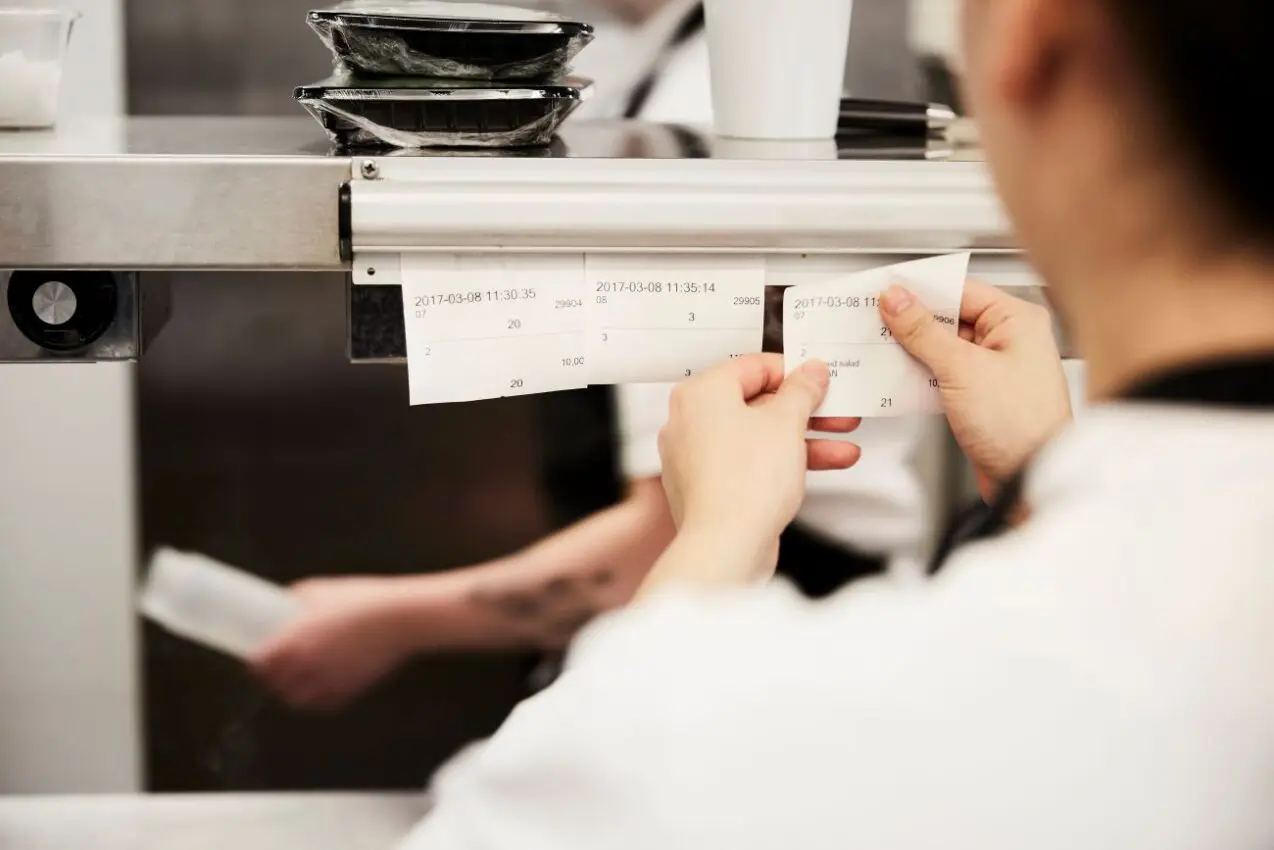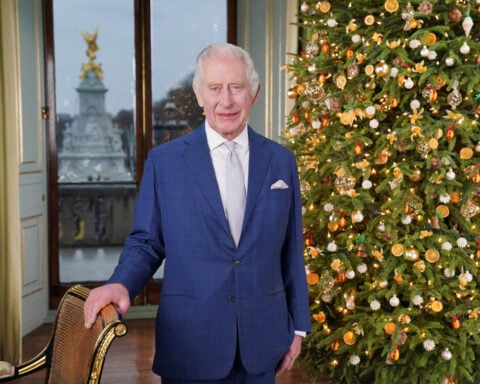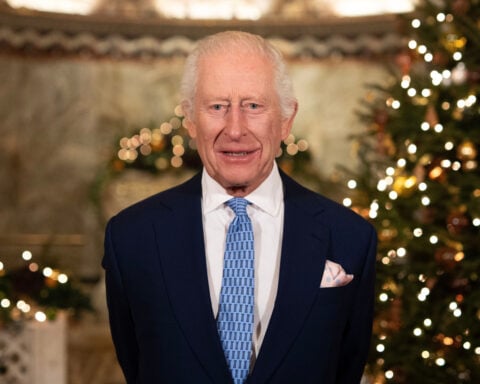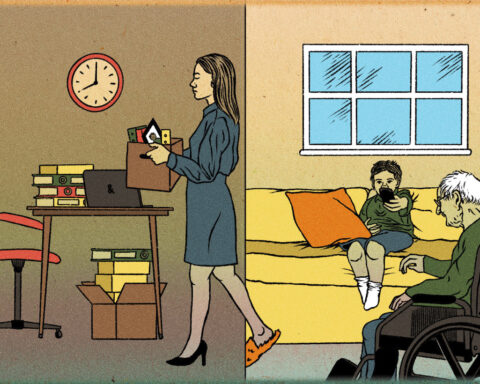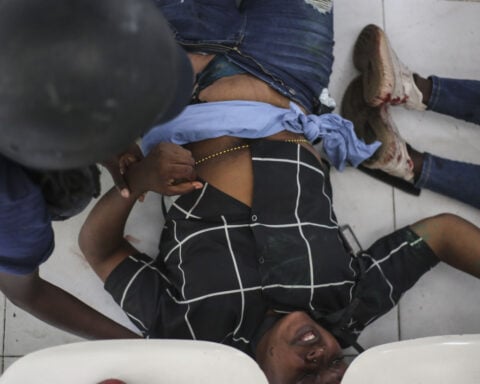A well-known and beloved New York doctor died tragically after suffering an apparent allergic reaction from food she ate at a restaurant in Disney Springs, Florida. A recent lawsuit states that Dr. Kanokporn Tangsuan, 42, had a severe allergy to dairy and nuts but believed the Disney-owned restaurant had strict safeguards against allergen contamination. Instead, the food she was served contained the very ingredients that would end her life shortly after.
Dr. Tangsuan--a reputed family doctor in New York dedicated to serving her community's healthcare needs--was dining at the Raglan Road Irish Pub and Restaurant with her husband, Jeffrey J. Piccolo, and mother-in-law when the incident occurred. The family enjoyed a planned vacation at Disney World, never expecting it to end in calamity. According to court records, Dr. Tangsuan informed her server multiple times about the potential dangers of her allergies, only to be assured the meal would be perfectly safe for consumption. Sadly, that was far from reality.

Within an hour, Dr. Tangsuan collapsed on the floor, struggling for breath, the victim of an extreme allergic reaction known as anaphylactic shock, the lawsuit alleges. Despite attempts at on-site medical intervention and urgent care at a hospital, she was pronounced dead. Her husband was left to pick up the pieces after the abrupt loss, turning to the legal system for answers.
Earlier this month, Mr. Piccolo filed a 19-page complaint against Walt Disney Parks and Resorts and Raglan Road pub, citing negligence that led to his wife's untimely death. According to the suit, Dr. Tangsuan emphasized the severity of her condition to their waiter, who "guaranteed" her meal would not trigger a reaction. However, none of the food arrived with allergen-free indicators. When the couple sought verbal confirmation their dishes were safe, the waiter again assured them that all nut and dairy ingredients were omitted as requested.
That negligent counsel proved deadly. Autopsy results showed Dr. Tangsuan had markedly elevated levels of dairy and nuts--the very components she actively avoided her whole life. The inquest concluded anaphylaxis was the official cause of her demise.
Mr. Piccolo alleges that the restaurant and its parent company did not properly train staff on safe procedures for patrons with food allergies. Labeling guidelines were not followed to validate that restricted ingredients were excluded from meals. Although Dr. Tangsuan took added precautions to prevent accidental exposure, the systems intended to protect vulnerable guests utterly failed.
Her surviving loved ones are now faced with profound sorrow and are seeking accountability for oversights that led to her passing. The family's legal claim aims to secure over $50,000 in compensation, including various aspects such as loss of companionship, income, and exceptional costs linked to the unfortunate event. Yet, no sum of money will fully bring back the lively lady who had her carefulness and faith betrayed.
Based on an online obituary, Dr. Tangsuan was a respected physician who managed a thriving practice in New York before her departure. Colleagues described the 42-year-old doctor as generous, observant, and completely committed to the health of her patients. She fostered a nurturing environment of empathy and kindness for everyone she cared for.
That same empathy seemed to permeate her personal life as well. Having battled lifelong food allergies herself, Dr. Tangsuan understood such conditions require diligence and safety assurances from businesses serving those individuals. However, on that fateful day in Disney Springs, such accommodations were nowhere to be found.
Instead, irresponsible protocol breaches brought a life of promise to a shocking halt. Survivors can merely speculate what critical work Dr. Tangsuan would have been performing now had basic precautions been exercised. How many future patients would have benefited from her expertise? What groundbreaking research could she have led? The implications of losing such a gifted healer and investigator are boundless.
While her potential achievements will remain unknown, Dr. Tangsuan's existing contributions leave an indelible mark on countless people--from her loyal patients to peers applying her teachings to the next generation learning medicine today. Through them, her legacy perseveres despite her abbreviated time here.
That rich legacy and enduring spirit now compel her widowed husband to demand better protection for others endangered by careless allergen handling. Mr. Piccolo's legal action serves as a siren calling the food industry to higher safety standards, improved training processes, and strict accountability. Though the outcome cannot restore his family's loss, it may prevent other families from suffering similar fates.
If any glimmer of hope exists, perhaps it lies in more restaurants adopting responsive models that incorporate the best practices known to safeguard diners with multiple allergies. Some eateries now utilize color-coded plates and utensils to designate allergen-free meals, provide specialized training to wait staff and kitchen teams, create sanitation protocols to avoid cross-contamination, etc. As court proceedings spotlight what went wrong in this disturbing case, enforcing such corrective programs could become the new norm.
Standardization always lags behind incidents prompting it. Hence, tragedies often catalyzed progress, benefiting untold numbers in their wake. While that evolution comes much too late to rescue his beloved wife, Mr. Piccolo refuses to let her death be in vain.
Through his steadfast efforts and unwavering demands for accountability from responsible parties, he advances her selfless example into an opportunity to elicit positive change. That way, a life devoted to caring for others may still care for strangers far into the future.
Perhaps it constitutes the ultimate way to honor Dr. Tangsuan's memory—by ensuring what happened to her spares others her fate. Though the should haves and could haves persist, redemption exists in admitting where the system failed and decisively resolving those deficiencies.
While words of consolation ring hollow to grieving survivors, actions transforming flawed practices into robust, reliable ones speak volumes. It validates their anguish was not overlooked in vain. It reassures their loved one's suffering was not disregarded callously or brushed aside indifferently.
Most critically, it upholds a sacred duty owed to every patron who enters an establishment expecting reasonable safety measures to protect them. Though negligence took Dr. Tangsuan prematurely, the imperative born means more vigilance, transparency, and compassion toward customers navigating food allergies. Her lasting impact resonates in renewed empathy, understanding, and urgent reforms prompted by her passing.
Through her husband's brave crusade to right grave wrongs by holding responsible parties to account, Dr. Tangsuan's death fuels momentum, ensuring no diner endures what she did out of deep sorrow springs progress made in her honor. Her selfless spirit lives on through patrons spared similar harm by the changes her case compelled. The legal system may determine culpability and consequences owed, but the court of public opinion will judge the tragedy's role in catalyzing safer restaurant practices.
By those measures, Dr. Tangsuan's truncated yet influential life continues advancing good through the people and protocols reformed consequently. However, she was robbed of decades more achieving that herself; fate empowered an army to carry forth her purpose.
That production will be her legacy—the operator turned operation bypassing her ability to spearhead it directly but nonetheless consummating her mission posthumously. Out of one extraordinary woman's preventable death emerged a movement positioned to save countless extraordinary lives instead. The void left by her absence fosters urgent awareness, and reforms are being made to fill it.
And perhaps that is how Dr. Kanokporn Tangsuan would want to be remembered most. Not as a victim of negligence or for how she died, but for how she still makes a difference in protecting others through the changes her tragedy inspired. How she yet touches, teaches, and saves future patients without treatment rooms or appointments simply by ensuring allergens never again cut careers short. How her enduring empathy and influence exceed one tragic moment, misjudging it as her last when, in truth, her impact was only beginning thanks to a loving family resolved to carry her legacy forward.
The beginning flows out of her end, as reflection leads to redemption, and a singular error gives life to universal safety standards that honor who she was. The doctor who could not save herself may still spare so many through the awareness, empathy, and safeguards salvaged from the wreckage of her death.
From profound heartbreak springs profound progress made in her name and nature. From the ashes, the essence of Kanokporn Tangsuan —doctor and changemaker—arises again. No longer embodied, but everlasting in the form of new procedures, attentiveness, and precedence set to affirm that no one who shares her condition shall share her fate. Where she fell, others now stand safer. Where ignorance reigned, enlightenment blooms. And the husband defending her memory demands that bloom forever flourishes across the land she once healed.
So, rather than focusing on the nourishment that killed Dr. Tangsuan, her mourners choose to spotlight how her tragedy nourishes improved practices and principles instead. They feed the future she forfeited by transforming sorrow into salvation, loss into legacy, and pain into purpose. The cuisine she ordered might have been mismanaged. Still, the higher cause emerging is lovingly handled by survivors unwilling to let her death recede as merely regrettable rather than resoundingly influential.
That resonant influence sustains Kan Tangsuan's spirit as if it were so much more than that of a deceased doctor and adored wife. She could not defeat her own affliction, but her legacy may conquer carelessness and poor training to protect others battling it now. Thanks to the family and followers moved by her passing, optimism exists. Their actions foster faith that vital change will come.

 Trump has pressed for voting changes. GOP majorities in Congress will try to make that happen
Trump has pressed for voting changes. GOP majorities in Congress will try to make that happen
 US holiday retail sales come in above forecast, Mastercard says
US holiday retail sales come in above forecast, Mastercard says
 Estonian government to meet as investigators probe interruption of undersea cable
Estonian government to meet as investigators probe interruption of undersea cable
 Pakistan military court sentences 60 civilians up to 10 years in prison
Pakistan military court sentences 60 civilians up to 10 years in prison
 Lebanon hopes for neighbourly relations in first message to new Syria government
Lebanon hopes for neighbourly relations in first message to new Syria government
 AI is a game changer for students with disabilities. Schools are still learning to harness it
AI is a game changer for students with disabilities. Schools are still learning to harness it
 Futures lower in holiday-thinned trading
Futures lower in holiday-thinned trading
 KEEPING THE SPIRIT ALIVE: Man’s family shows off century-old Christmas tradition
KEEPING THE SPIRIT ALIVE: Man’s family shows off century-old Christmas tradition
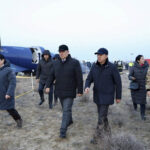 What is known about a plane crash in Kazakhstan that killed 38 of 67 people on board
What is known about a plane crash in Kazakhstan that killed 38 of 67 people on board
 These undersea tunnels connect remote islands halfway between Iceland and Scotland
These undersea tunnels connect remote islands halfway between Iceland and Scotland
